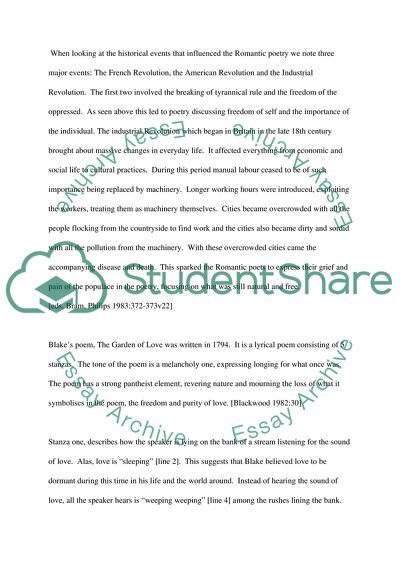Cite this document
(Blake and Browning Essay Example | Topics and Well Written Essays - 2500 words, n.d.)
Blake and Browning Essay Example | Topics and Well Written Essays - 2500 words. https://studentshare.org/literature/1744268-compare-a-poem-the-garden-of-love-by-blake-romantic-period-and-home-thoughts-from-abroadvictorian-period-by-robert-browning
Blake and Browning Essay Example | Topics and Well Written Essays - 2500 words. https://studentshare.org/literature/1744268-compare-a-poem-the-garden-of-love-by-blake-romantic-period-and-home-thoughts-from-abroadvictorian-period-by-robert-browning
(Blake and Browning Essay Example | Topics and Well Written Essays - 2500 Words)
Blake and Browning Essay Example | Topics and Well Written Essays - 2500 Words. https://studentshare.org/literature/1744268-compare-a-poem-the-garden-of-love-by-blake-romantic-period-and-home-thoughts-from-abroadvictorian-period-by-robert-browning.
Blake and Browning Essay Example | Topics and Well Written Essays - 2500 Words. https://studentshare.org/literature/1744268-compare-a-poem-the-garden-of-love-by-blake-romantic-period-and-home-thoughts-from-abroadvictorian-period-by-robert-browning.
“Blake and Browning Essay Example | Topics and Well Written Essays - 2500 Words”. https://studentshare.org/literature/1744268-compare-a-poem-the-garden-of-love-by-blake-romantic-period-and-home-thoughts-from-abroadvictorian-period-by-robert-browning.


